Intro
Discover effective Sinus Infection Medicine and treatments, including antibiotics, decongestants, and natural remedies to relieve sinusitis symptoms, congestion, and headaches, promoting healthy sinuses and breathing.
Sinus infections are a common health issue that affects millions of people worldwide. These infections occur when the sinuses, which are air-filled cavities in the skull, become inflamed or infected with bacteria, viruses, or fungi. The symptoms of sinus infections can be debilitating, including congestion, headaches, facial pain, and difficulty breathing. Fortunately, there are various sinus infection medicines available that can help alleviate these symptoms and treat the underlying infection.
Sinus infections can be acute or chronic, and the treatment approach often depends on the severity and duration of the symptoms. Acute sinus infections typically last for less than four weeks, while chronic sinus infections can persist for months or even years. In some cases, sinus infections can be caused by allergies, environmental factors, or anatomical issues, such as a deviated septum. Understanding the underlying cause of the infection is crucial in selecting the most effective treatment option.
The treatment of sinus infections often involves a combination of medications, lifestyle changes, and home remedies. Over-the-counter (OTC) medications, such as pain relievers, decongestants, and antihistamines, can help alleviate symptoms like headaches, congestion, and itching. However, for more severe infections, prescription medications like antibiotics, corticosteroids, and nasal sprays may be necessary. In addition to medications, lifestyle changes like staying hydrated, using a humidifier, and avoiding allergens can also help manage sinus infection symptoms.
Types of Sinus Infection Medicine
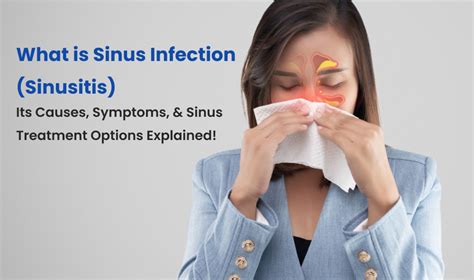
There are several types of sinus infection medicines available, each with its own strengths and weaknesses. The most common types of sinus infection medicines include:
- Decongestants: These medications help reduce nasal congestion by constricting blood vessels in the nose.
- Antihistamines: These medications are often used to treat allergic reactions, but they can also help alleviate sinus infection symptoms like itching and sneezing.
- Pain relievers: Over-the-counter pain relievers like acetaminophen and ibuprofen can help reduce headaches and facial pain associated with sinus infections.
- Antibiotics: These medications are prescribed to treat bacterial sinus infections and work by killing or inhibiting the growth of bacteria.
- Corticosteroids: These medications can help reduce inflammation and swelling in the sinuses, making it easier to breathe and relieving pressure.
How Sinus Infection Medicine Works
Sinus infection medicine works by targeting the underlying cause of the infection and alleviating symptoms. For example, decongestants work by reducing swelling in the nasal passages, making it easier to breathe. Antihistamines, on the other hand, block the release of histamine, a chemical that can trigger allergic reactions and exacerbate sinus infection symptoms. Antibiotics, meanwhile, target the bacteria that cause sinus infections, helping to clear the infection and prevent complications.Benefits of Sinus Infection Medicine
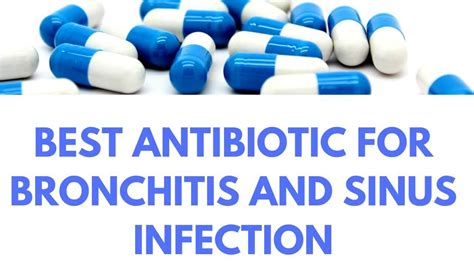
The benefits of sinus infection medicine are numerous. These medications can help:
- Relieve symptoms like congestion, headaches, and facial pain
- Reduce the duration and severity of sinus infections
- Prevent complications like sinus abscesses and meningitis
- Improve quality of life by allowing individuals to breathe easily and participate in daily activities without discomfort
- Treat underlying conditions like allergies and anatomical issues that may be contributing to sinus infections
Common Side Effects of Sinus Infection Medicine
While sinus infection medicine can be highly effective, it can also cause side effects. Common side effects include: * Drowsiness and fatigue * Headaches and dizziness * Nausea and stomach upset * Allergic reactions like hives and itching * Interactions with other medications, which can increase the risk of adverse effectsSteps to Take Before Using Sinus Infection Medicine
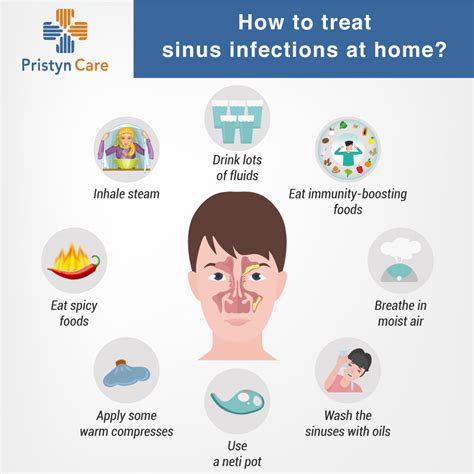
Before using sinus infection medicine, individuals should take several steps to ensure safe and effective treatment. These steps include:
- Consulting a healthcare professional to determine the underlying cause of the infection
- Reading and following the instructions on the medication label
- Informing the healthcare professional about any allergies, medical conditions, or medications being taken
- Monitoring symptoms and adjusting treatment as needed
- Practicing good hygiene, such as washing hands regularly and avoiding close contact with others
Practical Tips for Managing Sinus Infection Symptoms
In addition to taking sinus infection medicine, there are several practical tips that can help manage symptoms. These tips include: * Staying hydrated by drinking plenty of fluids * Using a humidifier to add moisture to the air * Applying warm compresses to the face to relieve pain and pressure * Avoiding allergens like pollen, dust, and pet dander * Elevating the head while sleeping to reduce congestionChronic Sinus Infection Treatment Options
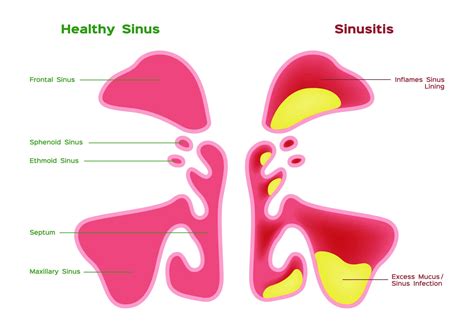
Chronic sinus infections require a more comprehensive treatment approach. Treatment options may include:
- Long-term antibiotic therapy to treat underlying bacterial infections
- Corticosteroid nasal sprays to reduce inflammation and swelling
- Immunotherapy to desensitize the body to allergens
- Surgery to correct anatomical issues like a deviated septum or to remove nasal polyps
- Lifestyle changes like quitting smoking and avoiding environmental pollutants
Home Remedies for Sinus Infections
In addition to medication, there are several home remedies that can help alleviate sinus infection symptoms. These remedies include: * Using a neti pot to rinse the nasal passages with saline solution * Drinking warm liquids like tea and broth to help loosen mucus * Adding eucalyptus oil to a diffuser or inhaling it directly to help open airways * Applying topical creams or ointments to the face to relieve pain and pressure * Getting plenty of rest and avoiding strenuous activitiesSinus Infection Prevention Strategies
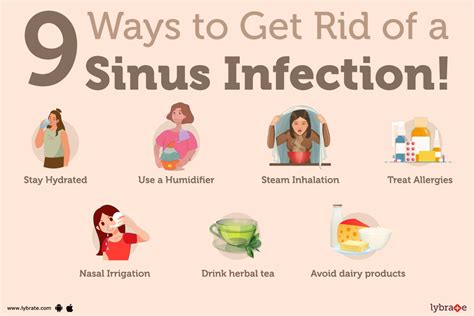
Preventing sinus infections requires a combination of lifestyle changes and hygiene practices. Strategies include:
- Practicing good hygiene, such as washing hands regularly and avoiding close contact with others
- Avoiding allergens like pollen, dust, and pet dander
- Quitting smoking and avoiding environmental pollutants
- Staying hydrated by drinking plenty of fluids
- Getting regular exercise and maintaining a healthy weight
When to Seek Medical Attention
While sinus infections can often be treated with over-the-counter medications and home remedies, there are times when medical attention is necessary. Individuals should seek medical attention if they experience: * Severe symptoms like difficulty breathing, severe headaches, or facial pain * Fever over 102°F (39°C) * Discharge or bleeding from the nose * Sinus infections that last longer than 7-10 days * Underlying medical conditions like diabetes, heart disease, or a weakened immune systemWhat are the most common causes of sinus infections?
+Sinus infections can be caused by bacteria, viruses, or fungi. The most common causes include the common cold, allergies, and environmental factors like pollution and tobacco smoke.
How long do sinus infections typically last?
+Acute sinus infections typically last for less than four weeks, while chronic sinus infections can persist for months or even years.
What are the most effective treatments for sinus infections?
+The most effective treatments for sinus infections include a combination of medications, lifestyle changes, and home remedies. Over-the-counter medications like pain relievers and decongestants can help alleviate symptoms, while prescription medications like antibiotics and corticosteroids may be necessary for more severe infections.
In conclusion, sinus infection medicine can be highly effective in alleviating symptoms and treating underlying infections. By understanding the different types of sinus infection medicine, their benefits and side effects, and taking steps to manage symptoms and prevent future infections, individuals can take control of their sinus health and improve their overall quality of life. If you have any questions or concerns about sinus infections or sinus infection medicine, be sure to consult a healthcare professional for personalized advice and treatment. Don't forget to share your thoughts and experiences in the comments below, and consider sharing this article with others who may be struggling with sinus infections.
